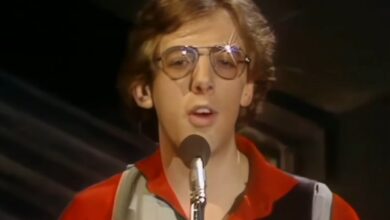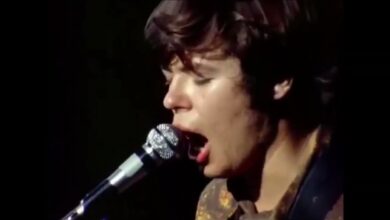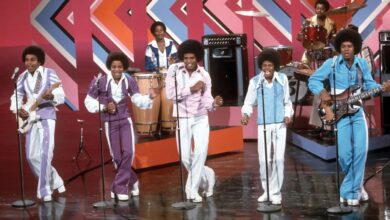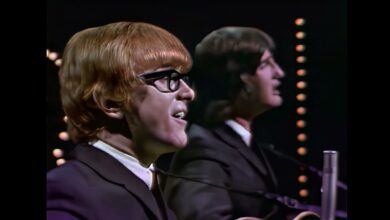Peter, Paul and Mary’s rendition of “If I Had a Hammer” is emblematic of the 1960s American folk revival, a period that saw traditional folk music blend with contemporary themes of social justice, civil rights, and anti-war sentiments. This song, in particular, became an anthem of sorts for those movements, encapsulating the era’s spirit of change and activism. Peter, Paul and Mary, a folk trio composed of Peter Yarrow, Paul Stookey, and Mary Travers, brought a harmonious and approachable style to the song, making it accessible and resonant with a wide audience.
The song “If I Had a Hammer” was originally written by Pete Seeger and Lee Hays in 1949, intended as an anthem for the Progressive Movement and initially associated with labor movements. However, it was Peter, Paul and Mary’s version, released in the early 1960s, that catapulted the song into the mainstream consciousness. Their rendition emphasized harmonious vocals and acoustic instrumentation, characteristic of the folk revival sound, which appealed to a broad spectrum of listeners, from grassroots activists to the general public seeking a connection to the broader social narratives of the time.
The trio’s performance style was marked by their tight vocal harmonies and dynamic arrangements, which brought a fresh and vibrant energy to “If I Had a Hammer.” Each member contributed a unique vocal texture: Peter Yarrow’s clear tenor, Paul Stookey’s deeper baritone, and Mary Travers’ rich alto. Together, they created a sound that was both powerful and tender, able to convey the song’s message of hope, justice, and the power of collective action.
Peter, Paul and Mary’s interpretation of “If I Had a Hammer” wasn’t just musically significant; it also played a role in the song’s transformation into a universal anthem. The lyrics speak of the hammer of justice, the bell of freedom, and the song of love between brothers and sisters, alluding to the trio’s broader commitment to civil rights and equality. Their performance brought these themes to the forefront, inspiring listeners to reflect on their own roles in the fight for social justice.
Beyond their musical contributions, Peter, Paul and Mary were actively involved in the social movements of their time. They performed at the 1963 March on Washington, where Dr. Martin Luther King Jr. delivered his iconic “I Have a Dream” speech, further cementing their place in the movement for civil rights and social change. Their music, including “If I Had a Hammer,” served as both a rallying cry and a source of comfort during tumultuous times.
Individually, each member of the trio brought a rich background in folk and popular music. Peter Yarrow, born in 1938, had a deep-rooted passion for folk music that was evident in his songwriting and performances. Paul Stookey, born in 1937, brought a blend of humor and depth to the group, contributing significantly to their distinctive sound. Mary Travers, born in 1936 and passing in 2009, was known for her powerful stage presence and vocal prowess, which added a compelling layer to the trio’s harmonies.
The legacy of Peter, Paul and Mary’s “If I Had a Hammer” extends beyond its initial release, continuing to inspire new generations of musicians and activists. The song’s timeless message of hope, unity, and justice resonates as strongly today as it did during the 1960s, reminding us of the enduring power of music to effect change.
In summary, Peter, Paul and Mary’s stirring performance of “If I Had a Hammer” is more than just a musical rendition; it’s a historical artifact that encapsulates the spirit of an era. Through their harmonious voices and commitment to social justice, they turned a simple folk song into a powerful anthem for change, leaving an indelible mark on the fabric of American music and culture.



